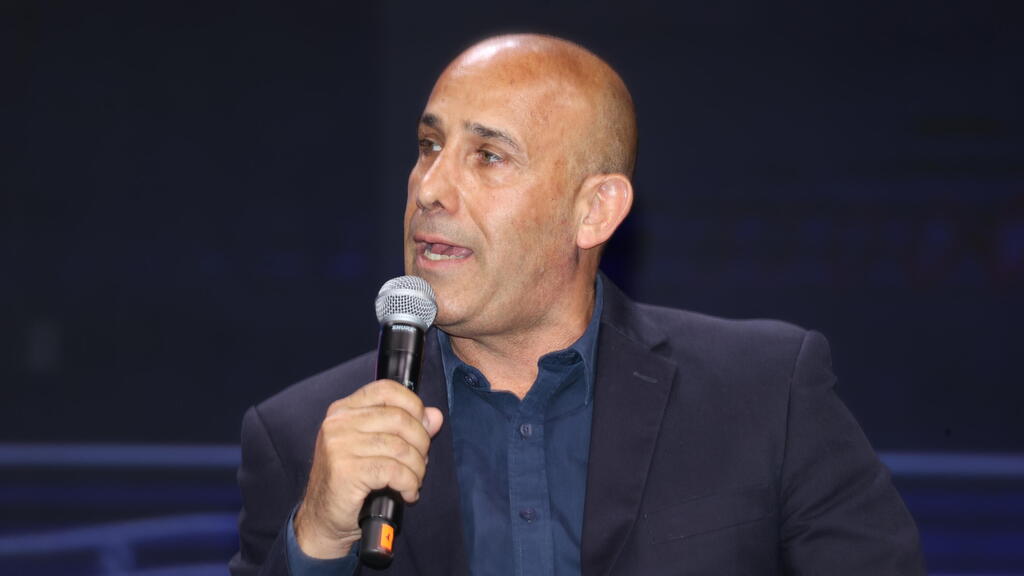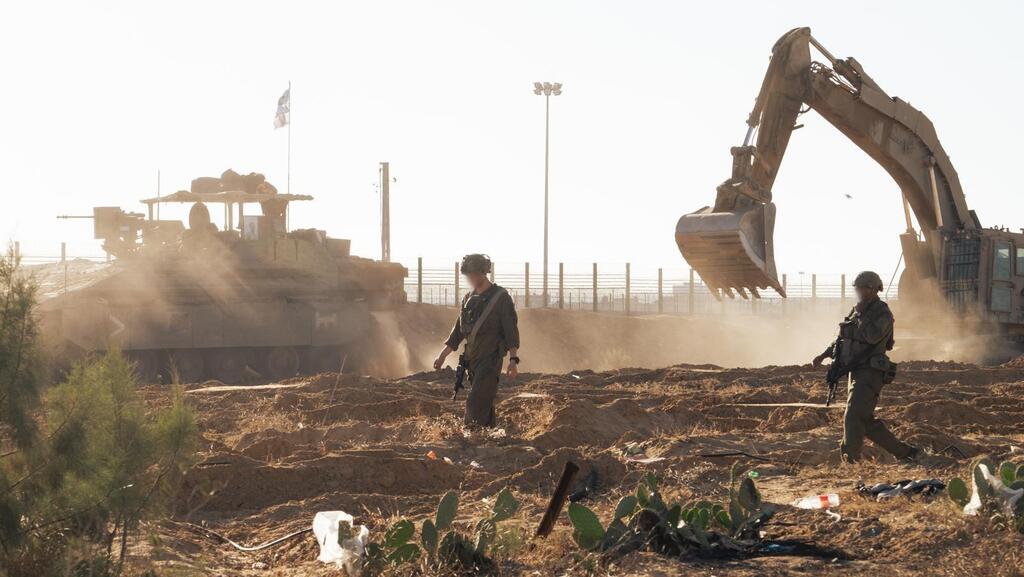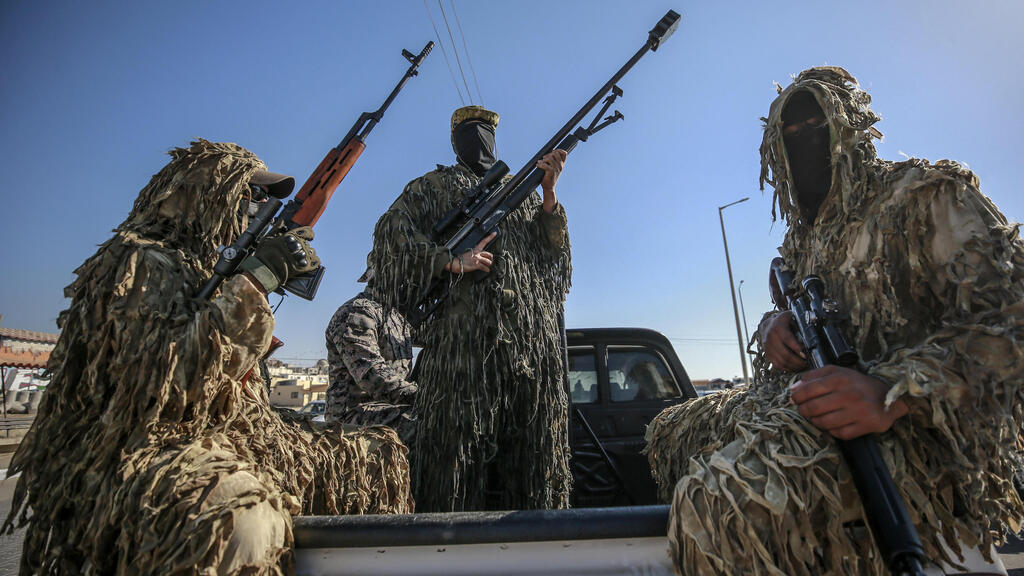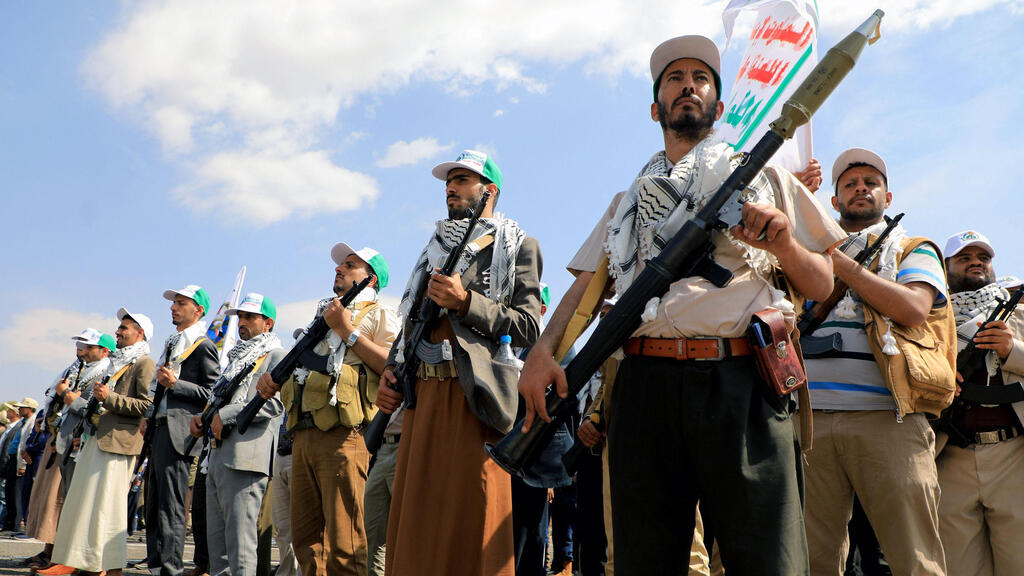Brig. Gen. Amir Avivi, chairman of the Israel Defense and Security Forum, speaks to The Media Line about the ongoing war in Gaza, Hamas’ controlling the next narrative, and the U.S.’s calls to halt the Rafah operation.
“And really now it’s in Hamas’ hands. If Hamas agrees to a 40-day cease-fire, and with this cease-fire to basically return the 33 hostages we agreed upon, then we’ll see a cease-fire for 40 days.” Avivi rightfully expected a renewal of the ground invasion in Rafah if Hamas didn’t agree to Israeli terms suitable for the hostage release.
Asked about the Biden Administration's thoughts on halting the operation in Rafah, Avivi told The Media Line, “What the administration is saying is basically it’s calling Israel to lose the war. Israel cannot lose the war. Israel cannot go back to a reality where Hamas can build itself back to tens of thousands of militants on our borders, threatening all the towns along the border and threatening all of Israel with rockets.”
He reiterated that Israel must achieve the real goals of the war and that it is not just about Gaza, referring to its ability to stand strong against Lebanon, Hizbullah, Iran, and militias in Syria and Iraq.
The war, which followed the October 7 massacre of 1,200 Israelis and foreign nationals and the abduction of more than 250 hostages, has been a slow and tactical operation that has left tens of thousands of Gazans killed, including 15,000 whom Israel claims are Hamas terrorists.
Avivi was deputy commander of the IDF's Gaza Division in 2010-2011; he understands the terrain, mindset, and obstacles.
As many question what has gone awry, he tells The Media Line it takes time. “This is due to how much the army shrunk the ground forces during the years. This has to do with the munitions and the pace that we are getting them,” Avivi says. “This had to do with the international pressure. But, overall, everywhere the IDF operated, Hamas was destroyed.”
He speaks of two key stages: one to destroy the battalions, brigades, command, and control, and the second to clean up the area.
“This can take years,” he says, reiterating that no one should expect an immediate end of the war because Hamas has time to fortify Rafah, and they are ready for this
“Israel can win the war, can reach its goals by going to Rafah. The leadership of Hamas is in Rafah. All the hostages are there. All the remaining military capabilities—Hamas has really fortified Rafah.”
Could the strategy have been different? Could the IDF have entered Rafah at the beginning of the war?
Brig. Gen. Avivi didn’t feel this was feasible at the first stage of the war when they were attacking the northern part of Gaza. “The big question for me is, should they have had the IDF gone into Rafah when the IDF attacked Khan Younis?” Avivi thought it probably would have been “wiser to launch the attack on Khan Younis and Rafah first and then get control of the border with Egypt.”
Avivi said that by cutting off Hamas’ capability to build itself, it also cut the chances of Hamas leaders and hostages being taken to the Sinai Peninsula.
He went further to say that the way things are done “gives a lot of power to Hamas and it’s a big mistake. Israel needs to attack more and talk less. But this is the reality.”
Avivi strongly criticized the IDF’s preparation and response to the October 7 events. He lamented the IDF's failure in its core duties of intelligence and defense, attributing these shortcomings to longstanding preconceptions among military leadership. He remarked, "They had a chance to really think differently, and they’re stuck with their own preconceptions. And the society is paying a heavy, heavy price for that. And it obviously means that we really need a change of leadership in the army."
The Media Line asked if there were backup plans that were ready. Avivi replied, “So the army in the Southern Command had in the past a plan to take over all of Gaza. But again, these plans always need to be planned again once a new situation emerges. This situation is very different from what the IDF imagined.”
“Most of the plans looked at Lebanon as the main challenge and Gaza more as defensive plans. To adjust plans is not so complicated. I don’t think this was the main problem,” he said. “The main problem was not being proactive in the understanding that war with Gaza is imminent.”
“We in IDSF said it two years ago, that war is coming, that it’s imminent, that we need to take over the Gaza Strip, that we need a Six-Day War scenario, not a Yom Kippur War scenario. And unfortunately, Israel chose a Yom Kippur War scenario and now we have to deal with this.”
On security threats from Gaza, Avivi emphasized the impossibility of tolerating a substantial hostile armed force near Israeli borders, advocating for a continuous military presence in Gaza to dismantle and prevent the resurgence of such groups. “The lesson learned is you cannot have a terror army on the other side of the border. This is not a reality Israel can have.”
Asked to confirm reports that approximately 40 hostages are still alive in Gaza, he suggested that the actual number of survivors might be higher, stating, "I think that at least half of the hostages are alive, but definitely every day that passes puts them in danger. And when we talk about releasing certain hostages now and then waiting, what about the others?” He emphasized the urgency of a comprehensive military response to rescue all hostages as swiftly as possible.
Avivi addressed rumors regarding mass graves allegedly linked to the IDF. He refuted these allegations by shifting focus to Hamas' tactics, stating, “It’s actually Hamas that wants to use these citizens as a human shield that is trying to block the citizens from going out of war zones. Hamas wants as many citizens as possible to die.” It is Hamas, he said, not the IDF, that is putting civilian lives at risk.
Commenting on the oversight of warnings from female surveillance operators at the Nahal Oz military base, who had observed suspicious activities on the Israel-Gaza border prior to October 7, Avivi criticized the military leadership's response to these alerts: "I think that this is what happens when you try to process information through ideological narratives.
"And then the outcome is completely different. Instead of looking at the reality as it is, and listening to the facts as they are, the way the leaders of the army process this information is basically pretty much disregarding it." He described a significant disconnect between the reported observations and the leadership’s interpretation and response to those reports.
Avivi recounted his visit to the scene of the October 7 attack and his conversation with a leading commander who assured him that the threats around the Gaza border fence were under control, claiming that Hamas was deterred.
Avivi said the misplaced confidence was similar to that experienced before the Yom Kippur War, noting that the facts were ignored due to entrenched beliefs. He described how TV commentators often offer diverse interpretations of the same events and propose vastly different solutions to the same incident security challenges.
He also addressed the geopolitical landscape, calling for decisive US leadership against regional threats, particularly from Iranian-backed forces, to prevent global destabilization. He passionately argued for relentless pursuit of Hamas leaders, drawing a parallel to historical efforts against Nazis, underscoring a commitment to ensuring that those responsible for attacks against Israelis face justice.
“Even if it takes five years, 10 years, every single leader of Hamas must be destroyed,” he said. “Wherever they are, no matter in what country, no matter what happens, nobody can butcher our people the way they did and stay alive afterward. They need to pay exactly as the Nazis paid. Israel hunted Nazis for years, and the Israeli society expects Israel to hunt these leaders until every single one of them is dead.”
Discussing the challenges faced in managing aid during the ongoing conflict, Avivi addressed the dynamics of providing support to Palestinian areas while ensuring it does not empower Hamas. He explained the situation, stating that “we are feeding our enemies. But we understand that this is a basic condition of the US to continue and support Israel,” and adding, “It cannot be that at the end of the day, this aid arrives to Hamas, that Hamas then really spreads the aid and controls the society.”
Regarding Israel's strategies for postwar Gaza, Avivi emphasized the importance of maintaining military and civilian control in the region to prevent Hamas from regaining power. He articulated the necessity of a sustained Israeli presence, stating, “Israel will have at least for a while to control militarily, even on the civilian side, Gaza until a new leadership is built. And it’s not going to happen in a day.”
Avivi highlighted the historical and current complexities of Israeli-U.S. relations and the broader implications of regional conflicts. Reflecting on past challenges, he recalled a critical moment in Israel’s War of Independence, when the United States demanded that Israel withdraw from the Negev and the Galilee. “And Ben-Gurion stood firm and said, this is not going to happen. We’re not going to withdraw.”
In a recent article, The Media Line exposed the capabilities of the Iranian-backed Houthis, not only to fire missiles that can reach Israel and cause major disruption to the shipping industry but also to destroy the internet lines beneath Bab el Mandeb Strait and the Red Sea, potentially impacting 2 billion people.
Asked what should be done to mitigate this threat to global stability, Avivi urged the U.S. to lead decisively: “We expect the U.S. to show leadership as a global leader, to build a coalition, to stand strong, to be willing to use military power against the Houthis, against the militias in Iraq, but first and foremost against Iran, the generator of all this terror. And when the U.S. doesn’t show leadership, then you see destabilization globally. And this is exactly what’s happening.”






